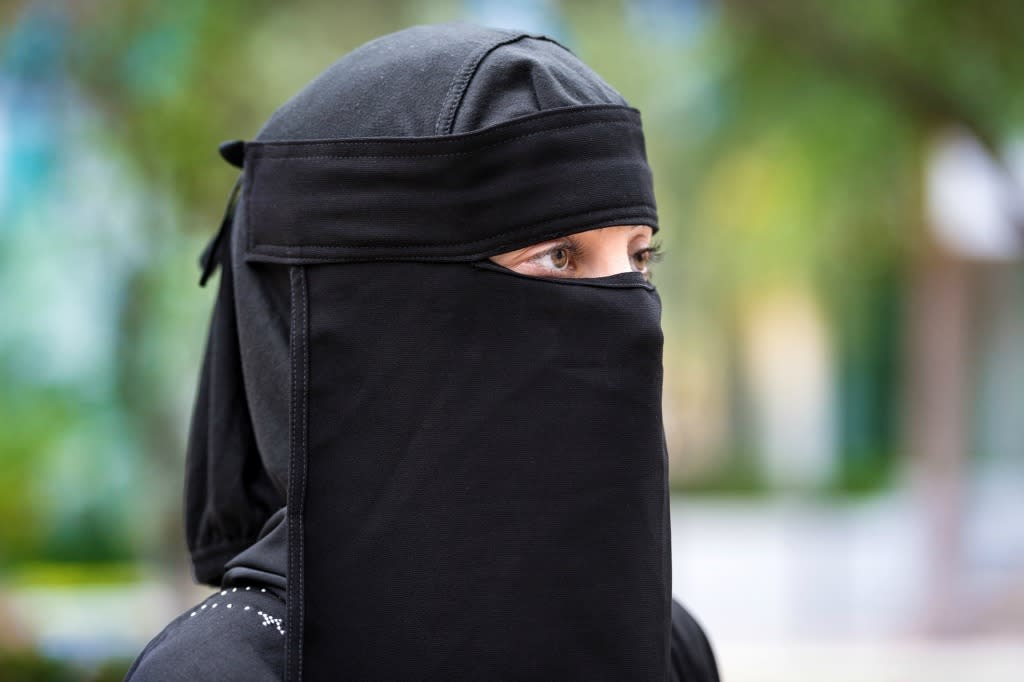Germany Bans Muslim Student From Wearing Niqab Face Veil in School

An 18-year-old Muslim student in Germany can no longer legally wear the veil that aligns with her religious beliefs , according to the U.K.’s Independent. When her school, the Sophie Scholl Evening Gymnasium, prohibited her from wearing the garment to class, the teen tried to sue — but her appeal was struck down by a German court after the case was taken to an administrative court in Osnabrück.
“The school had argued that it could not ensure the educational development of [the] student,” says the Independent. The reason? School officials claim they could not identify the student, as her niqab obscures her face, leaving clearance only for her eyes, according to a description on the BBC’s website. It is usually accompanied by a headscarf.
Attempting to compromise, the student suggested that a teacher verify her identity at the beginning of class, while allowing her to wear her garment. But the school argued that the niqab hindered “effective communication,” which relies “not only on the spoken word, but also on non-verbal elements and body language,” according to the Independent. The publication says that this ruling is one of the first of its kind.
Ironically, the niqab originated as a practice that would help Muslim women fit into society, according to the BBC. Contrary to the belief that niqabs and other religious head coverings are imposed on Muslim women as an act of repression, Facing History says that many female Western defendants of Muslim tradition argue that face veils are a self-imposed and respected form of piety — even a form of self-expression.
The German scandal follows a disturbing pattern, as the publication reports that a Muslim student in Bavaria has also been banned from wearing her niqab to her secondary school. According to Sputnik News, the economic minister of the German region of Bavaria supports a ban on both niqabs and burqas, a related, even more conservative garment worn by some Muslim women. The burqa covers the entire body, and German ministers feel it prevents newcomers from integrating.
Germany’s interior minister, Thomas de Maiziere, “has warned members of the ruling Christian Democratic Union (CDU) that such a law [banning burqas] would contravene Germany’s laws on religious freedom,” according to the Independent. But Die Welt newspaper quotes German politician Jens Spahn as saying, “Anyone who is on their way to Germany [from another country] must be aware that life here will be very different than that at home. They should be even more careful if they really want to live in this Western culture.”
These incidents of niqab- and burqa-related discrimination coincide with a third scandal, this one involving the burkini, a conservative swimsuit worn by Muslim women. France has made headlines recently by outlawing the burkini, and less than 24 hours ago, a woman lounging on the beach in Nice was forced by four armed French police officers to remove her burkini, according to the Mirror. The woman was also slapped with a fine for breaking the country’s burkini ban.
According to the Independent, “the European Court of Human Rights confirmed it was legal for France to ban full-body veils” after a 24-year-old Muslim woman in France claimed that the ban on wearing burqas in public “violated her freedom of religion and expression.” The woman also argued that the law encourages “discrimination based on gender, religion and ethnic origin, to the detriment of women who wear the full-face veil.”
Follow us on Instagram, Facebook, and Pinterest for nonstop inspiration delivered fresh to your feed, every day.


